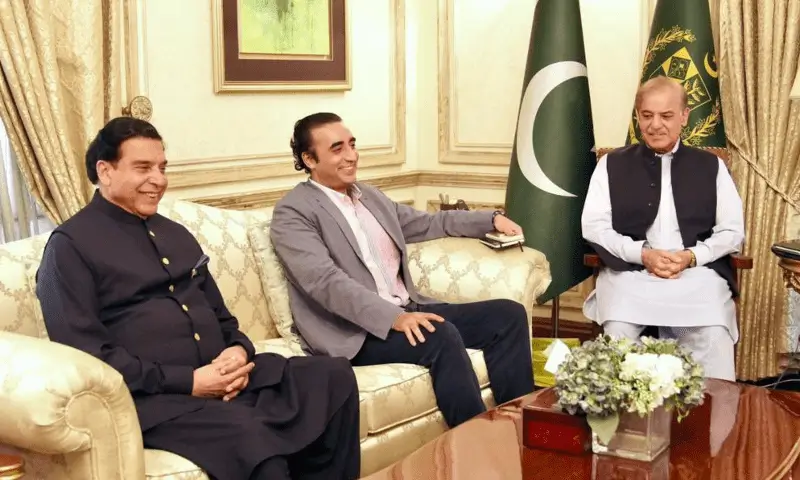Amendment Talks Signal New Reform Push
Prime Minister Shehbaz Sharif and PPP Chairperson Bilawal Bhutto-Zardari’s Lahore meeting has revealed plans for fresh constitutional changes, with focus shifting toward a potential 27th Amendment following their recent legislative success.
Amendment Meeting Participants
Key figures present at the crucial discussions included:
- PPP Representatives:
- Raja Pervaiz Ashraf
- Governor Sardar Saleem Haider
- Syed Naveed Qamar
- Barrister Murtaza Wahab
- PML-N Leaders:
- Rana Sanaullah
- Law Minister Azam Nazeer Tarar
The high-profile gathering at the Prime Minister’s Model Town residence suggests significant developments in the coalition’s legislative agenda. While official statements remained carefully worded, inside sources provided deeper insights into the planned constitutional changes.
Post-Amendment Coalition Priorities
The emerging legislative framework encompasses several key areas:
- Local government system strengthening
- Charter of Democracy implementation
- NAB law reforms
- Judicial system overhaul
- Parliamentary dignity protection
Amendment Negotiations with MQM-P
The foundation for the next amendment was laid during previous negotiations with MQM-P, whose support for the 26th Amendment came with specific conditions regarding local government reforms. Their backing remains crucial for any future constitutional changes.
Proposed Amendment’s Judicial Aspects
Senior coalition leader Rana Sanaullah made significant statements about the judicial implications of recent and upcoming amendments, particularly noting that Chief Justice Yahya Afridi should refrain from heading constitutional benches established under the new framework.
Economic Progress Amid Amendment Efforts
Despite the focus on constitutional changes, Prime Minister Shehbaz Sharif emphasized the government’s economic achievements:
- Positive economic indicators
- Declining inflation rates
- Coalition unity on fiscal policies
- PPP’s continued support for economic measures
The coalition’s special parliamentary committee, instrumental in crafting the 26th Amendment, will continue its work, suggesting ongoing preparation for future constitutional reforms. However, leaders stress that immediate attention remains on implementing existing legislation before pursuing new amendments.
In conclusion, while the timeline for the proposed 27th Amendment remains fluid, the coalition demonstrates clear commitment to its reform agenda. The careful balance between implementing current changes and planning future amendments reflects the complex nature of constitutional reform in Pakistan’s political landscape.
This strategic approach to constitutional amendments showcases the ruling coalition’s determination to address various governance issues while maintaining political stability and economic progress.

